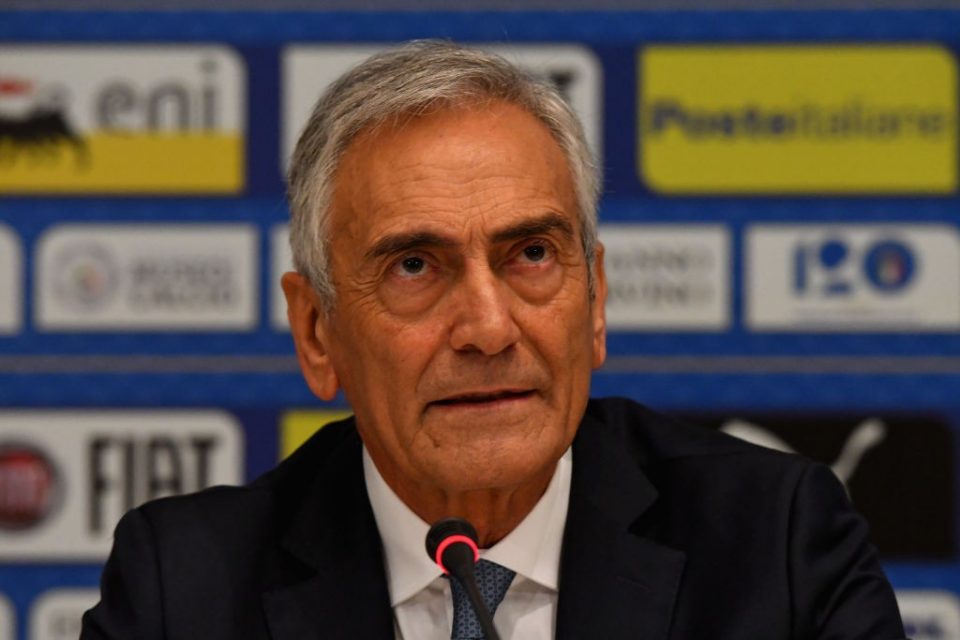FIGC president Gabriele Gravina discussed the Coronavirus emergency and its effect on Italian football in an interview with Italian news outlet Adnkronos earlier today.
First, Gravina discussed the next steps for the FIGC and Italian football.
“We are working on several fronts, our priority is to complete the 2019-20 season, but we must be careful not to compromise the 20-21 season. We have to be very cautious in assuming a series of scenarios.”
He then highlighted how the federation have been in contact with both FIFA and UEFA.
“We are in close contact with UEFA and FIFA, as far as their respective competences are concerned, and we believe a lot in the support that the maximum European body can give at this moment to all the Federations.”
Gravina discussed how difficult the solution will be to reach and the short time frame available to the federation.
“When dealing with a project of this kind, we must never forget that we have a technical time frame of no less than 20-30 days, between questions, checks and controls. We must bear in mind that if we were to go beyond the month of July, there would still be another month that would be needed to fine-tune the organizational machine and above all the control over the teams.”
The FIGC president didn’t think that it was viable to play matches in regions less affected by the Coronavirus contagion, such as those in the south.
“We do not discard any idea, but frankly to think that there is a part of our country that is suffering and continues to be a victim of this great epidemic and on the other hand to think about starting a different path, I do not see it viable. We must think that there is scientific research committed to finding that vaccine or those pharmacological remedies that can help the whole of humanity. We have one available, currently and that already works, which is solidarity, if we do not put this antidote in place and continue to cultivate our selfishness, I believe that we have not understood anything.”
Gravina also suggested that next season was not likely to lower the number of teams in Serie A to 16 or 18.
“Today there are rules in our national licenses, there are federal regulations that establish the formats. We must be careful not to make the most serious mistake, in a certain historical moment like the one we are living in, that we abandon ourselves to desires and assumptions that cannot be lowered into reality. We have rules that must be respected in any case, they can be modified, but there are technical timescales required.”
He highlighted the importance of staying calm and making a good decision, rather than upsetting the regularity of the league in order to provide quick solutions.
“Not forgetting that if we set out on a path that does not fall within the boundary of compliance with regulatory principles, we run the risk of starting disputes and we run the risk, really, of compromising not only this season, but also the next and also the coming seasons. I call on everyone to take a real pragmatic approach. We cannot confuse the book of dreams with reality. I understand that we are in an emergency, an emergency that guides and conditions our choices. We depend on a virus, right now, but we also depend, at the end of this virus, on a principle, which is that of respecting the rules.”
Gravina touched on the discussions with the Italian Footballers’ Association regarding a players’ salary cut for the months that they are not working.
“There’s a lot of contact with the Players’ Association, there’s a lot of activism from different clubs. What is fundamental is to find a common line for all the components that takes into account the general needs that emerge at the moment, but above all takes into account the specific differences of the individual leagues that have peculiarities related to salaries.”
Finally, Gravina spoke about the requests that the Italian football federation has made to the government in order to help protect the institution of football in the country.
“From some conversations we understood that a whole series of amendments were ready that we asked to be able to include in the decree law, which should go into conversion very soon, but we understood that, at the moment, there is a priority being given, within the conversion into law, to the planned amendments concerning the emergency and health protection and I must say that we immediately put the brakes on this, demonstrating that football has a strong sensitivity towards the protection of health and emergency. There will come a time, which is that of a new decree law, when we will ask to be included on an equal footing with every other economic sector in our country, but I stress, without asking for additional resources.”





